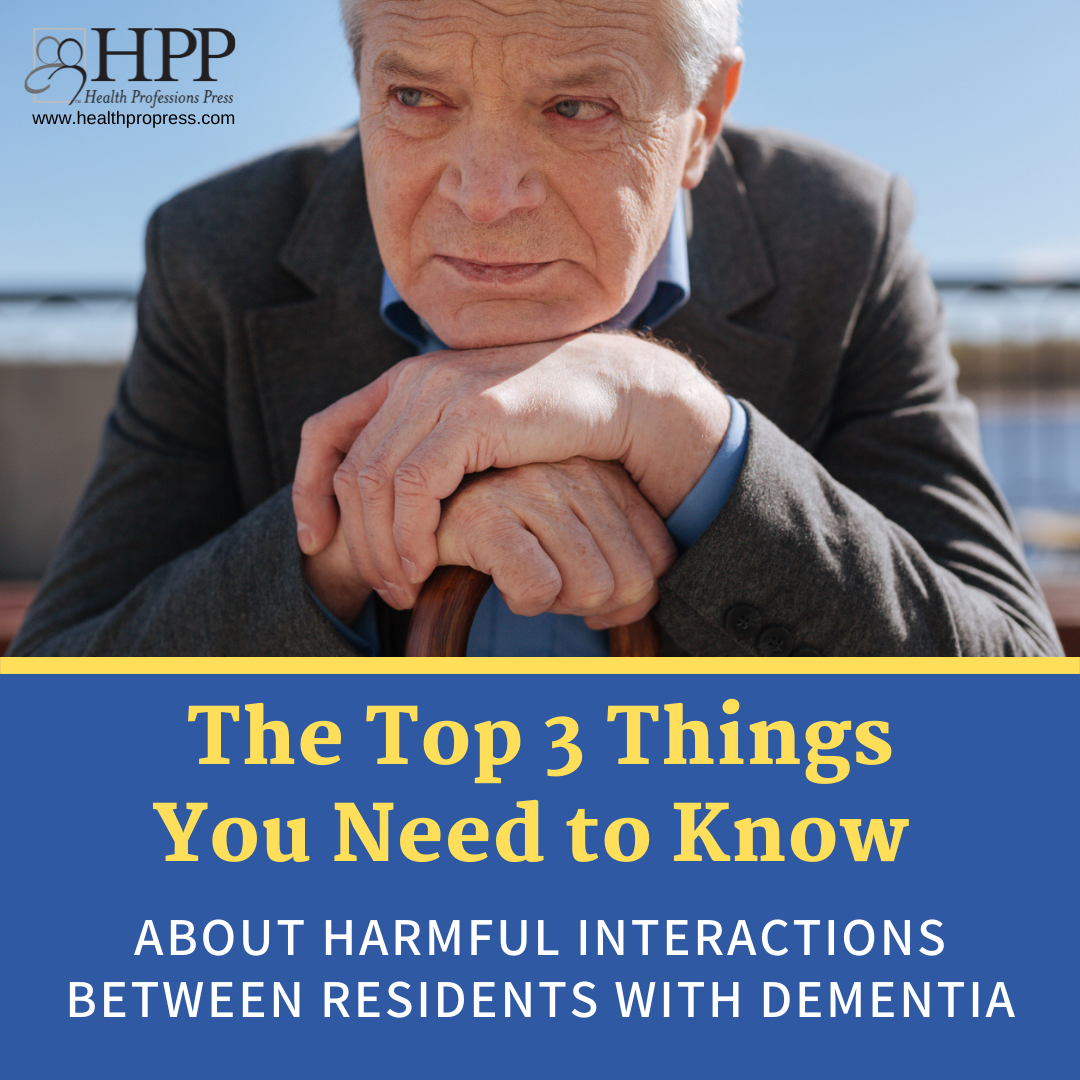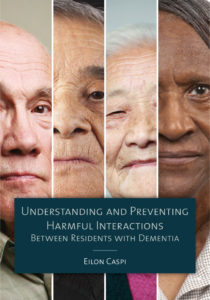
In his book, Understanding and Preventing Harmful Interactions Between Residents with Dementia, Eilon Caspi, Ph.D., has three key things he wants readers to know about this phenomenon.
1. In the vast majority of distressing and harmful resident-to-resident interactions, people living with dementia “fight” with each other in an effort to preserve their dignity.
In the words of Joanne Koenig Coste, “Alzheimer’s disease doesn’t take the person’s dignity away. We do.” Next time you notice a resident with dementia engaged in an episode with another resident, observe it carefully, and try to look at it through the lens of dignity. That is, do your best to discover the ways in which the situation threatens the person’s dignity and the ways in which he or she is trying to preserve it.
If you are able to be centered, attentive, and fully present, and if you dedicate enough time to this effort, in most situations the insights you will gain from direct observation will open up new and exciting opportunities for proactively meeting residents’ needs and thus more effective prevention of these episodes, while preserving these individuals’ dignity.
2. Only a very small subgroup of elders living with dementia engage in behavioral expressions that are truly aggressive. The vast majority of these individuals are not aggressive.
This biomedical term is often unhelpful because it is not only inaccurate in most situations, but it is also labeling, and deeply stigmatizing. It prevents us from seeing the whole person behind the dementia. It limits our ability to see that people living with dementia have the same human needs we all share. They live with a cognitive disability caused by a serious brain disease. They are trying their best to use their remaining cognitive and physical abilities to cope with factors in their social and physical environments they often experience as distressing, frustrating, and frightening. For far too long, we have been inadvertently dehumanizing people with dementia when we commonly but mistakenly labeled them as “aggressive.” This and the other biomedical and harmful terms “violent” and “abusive” reflect more on us than on people living with dementia. The time for a paradigm shift is long overdue.
How would you feel if you had a serious brain disease, could not express yourself verbally, and were forced to share close quarters in a care home with 30 other residents with dementia 24 hours a day, 7 days a week, 365 days a year? How would you feel if other residents with dementia repeatedly invaded your personal space or entered your bedroom or bathroom? How would you feel if you have not gotten along with your roommate for months and your desire for a bedroom change is not happening? Then, when you can no longer stand it, reach a breaking point, and express your deep frustration and anger, you learn that one of the care employees described you as an “aggressive” or “violent” person. How would that make you feel? Consider these questions before using these terms in the future.
3. Care homes can be successful in assessing, identifying, and proactively meeting the emotional, psychological, social, medical, and other basic human needs of residents living with dementia.
With the full commitment of owners and administrators of care homes to this effort, direct care partners can prevent and de-escalate the majority of these episodes. This commitment can go a long way in restoring residents, families, and the public’s trust in nursing homes and assisted living residences as safe care environments for residents with dementia and a safe work environment for direct care partners.
Get the book!
To learn how to successfully address this issue in your care community, get your copy of Understanding and Preventing Harmful Interactions Between Residents with Dementia. The first care standard for the field, it is filled with psychosocial strategies, practical tools, and instruction to use to prevent and de-escalate situations prior to, during, and after harmful resident-to-resident interactions.
Understanding Preventing Harmful Interactions Between Residents with Dementia by Eilon Caspi, Ph.D. Copyright © 2022 by Health Professions Press. All rights reserved.

